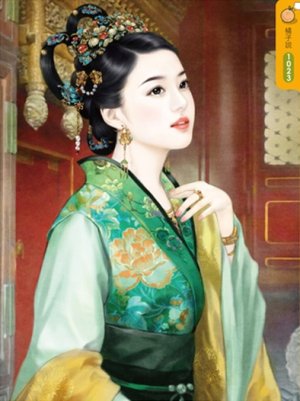Koi, my friends, is something as refreshing as a love triangle story that doesn’t suffer from the intolerable ”Evil Second Lead Syndrome”. From the synopsis, you learn that the driving force behind it is to find out what really happened that day when a “crime of passion” took place, but this is by no means a detective or investigation story. The writer who gets to hear a dying woman’s confession is merely there as a frame story, a reason for the real story to be told.
The real story is a love affair, a ménage-à-trois that at one point seems beautiful and perfect until the cracks in the façade eventually begins to be seen (can such things really be that way for long anyway?) but even though you know (from scene one) that it’ll end badly somehow, there’s something wonderfully alluring here that sucks you in and you’ll watch in fascinated sympathy how things fall apart.
Or maybe that’s just me. Except, no, it can’t be just me; the story is based on an award winning novel, and what is more; some of the basic elements of the plot have been used many times before. Evidently, people fall for it, the story of an innocent young girl getting lured in by an older, glamorous and decadent couple that laughs affectionately at her because they can barely remember what it once felt like to be naïve like her… I have read it before, and I’d read it again. In this version of the relationship of three, there were the things I had anticipated, and things I couldn’t see coming. (I imagine some people would criticise the ending, but I – being the sentimental fool that I am – like it.) I would really love to read the original novel, though, to find out about a few things I’m wondering about…
I have to admit, though, to being somewhat biased, not only for liking the theme but also for liking the male lead, Iura Arata. My expectations were high, because lately I’ve just been going through his minor supporting roles and I’ve been waiting eagerly to see him in a main role again. With this character, I got more or less what I wished for – an intellectual seducer with a dark secret and a gentle heart. (From a fangirl point of view: so hot!!) Katase Shintaro and his wife Hinako are elegant, seductive people and experienced in the ways of the world while also seeming to live in their own little universe that only a select few are invited to. The young student Fumiko – they call her Fuu-chan – is lucky or unlucky enough to be invited. She is thoroughly seduced by their overwhelming presence in her life and watching how this happens, inevitably as it has to happen, is very enjoyable.
Fuu-chan is a simple character, the kind of character who just is who she is and becomes dear to the others because of her kind and gentle spirit. There are no surprises in this character, but that’s not to say that she’s shallow. She is just as fascinated as she is intimidated by the couple's passionate, free-spirited lifestyle but she learns to like and accept them. Ishihara Satomi pulls off this natural cuteness almost surprisingly well and I didn’t doubt her for a moment. Tanaka Rena as Hinako is equally convincing: this pleasure-seeking, somewhat whimsical femme fatale kind of character could easily become over-the-top but somehow the actress manage to balance on a thin line, gradually revealing Hinako’s vulnerability. As for Iura Arata, well, this kind of role just suits him – he may have done it before but if you need an actor who can dive deeply into the darker realms of passion and do it with true conviction, he’s your man. This character is the one who goes through most of the changes, or rather, the way we look at him – through Fumiko – changes when we get to understand him better.
I have to give this a ten overall. This story may not always be subtle but it’s elegant and vibrant, erotic without being graphic, and with some surprises in the second half. The enjoyment lies in the character's interaction and all the emotions, and all in all, this is very well done! Even though the characters are driven to the edge of reason, this is not done for dramatic effect or because of drama clichés (e.g. jealous ex lover, annoying parents, etc), this is motivated by the story’s and the characters’ inner logic. Even the old “moth-to-the-flame” metaphor is taken to the next level. (Not gonna lie; I was thinking “no, please…” the moment the moth flew in, but thankfully the writer knew what she was doing!) It’s like a Greek tragedy; you know that something bad will happen, but once it does, you know that it couldn’t have been any other way. And through it all, they do truly love each other.
Is this a movie I would rewatch? Maybe! I found some beautiful and swoon-worthy scenes in it. As for the music, I suppose it did add to the atmosphere every now and then but overall I didn’t really notice it.
Cet avis était-il utile?


























